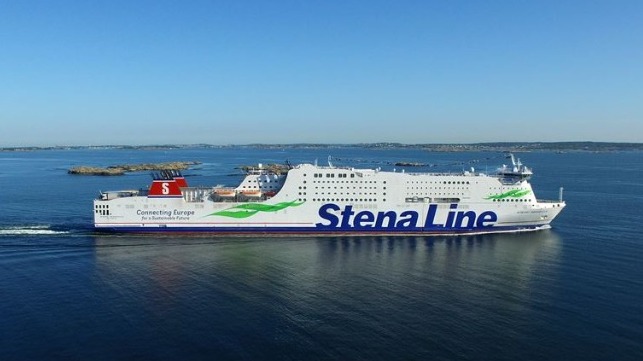MAN Joins Stena and Proman to Develop Methanol Retrofit Solution

MAN Energy Solutions is joining an ongoing project between Stena and Proman to develop a retrofit solution to enable ships currently in service to adopt methanol to lower their greenhouse gas emissions. Shipping lines, including the partnership between Stena and Proman as well as Maersk and CMA CGM, are ordering new ships capable of operating on methanol, but so far there has been no economic solution to convert existing ships to operate on methanol.
Proman and Stena announced last fall that they were committed to jointly developing a retrofit and supply solution, enabling both Stena’s approximately 140 vessels, as well as vessels operated by other companies, to experience the immediate environmental benefits and greenhouse gas emission reductions delivered by methanol. Stena undertook one of the first conversions seven years ago in 2015, with its vessel Stena Germanica, and hopes to build on that experience with the conversion and operational perspective to create a financially viable migration for ships to methanol operations.
Under the terms of the new agreement, the three companies will cooperate on a project to retrofit MAN 48/60 engines to make them capable of dual-fuel, diesel and methanol operation. Dual-fuel solutions, already widely available for liquified natural gas are playing a major role in the adoption of LNG as a fuel for shipping.
“I’m certain that many interested parties will be watching this retrofit’s progress,” said Stefan Eefting, Head of PrimeServ Germany, MAN’s service brand for all its energy solutions products. “Methanol has great potential as a future fuel and is clean, efficient, and safe to work with. It offers significant greenhouse-gas reductions, and is even net-zero when produced from renewable energy sources.”
Under the terms of the agreement, the project will start with an initial feasibility study, defining the scope and limits of the project, the division of work, and respective responsibilities. The primary aim of the project will be to investigate methanol combustion. MAN says they will be exploring fuel injection due to the inherent advantages for legacy installations. The project will explore the use of the technology both for newbuilds and the potential for later retrofits.
After completing the feasibility study, the second phase would involve the retrofit of the engine, along with commissioning and field testing. The final phase they envision would involve the completion of field testing, and engine handover for commercial operation.
Two months ago, the joint venture between Stena Bulk and Proman Shipping took delivery on the first of six new mid-range methanol-fueled tankers. Being built in China, the 49,000 dwt tankers are considered pioneers for methanol operations. They are using MAN engines. The companies hope to learn from the operation of these vessels to provide a model for the industry to adopt methanol as a broader fuel solution.
